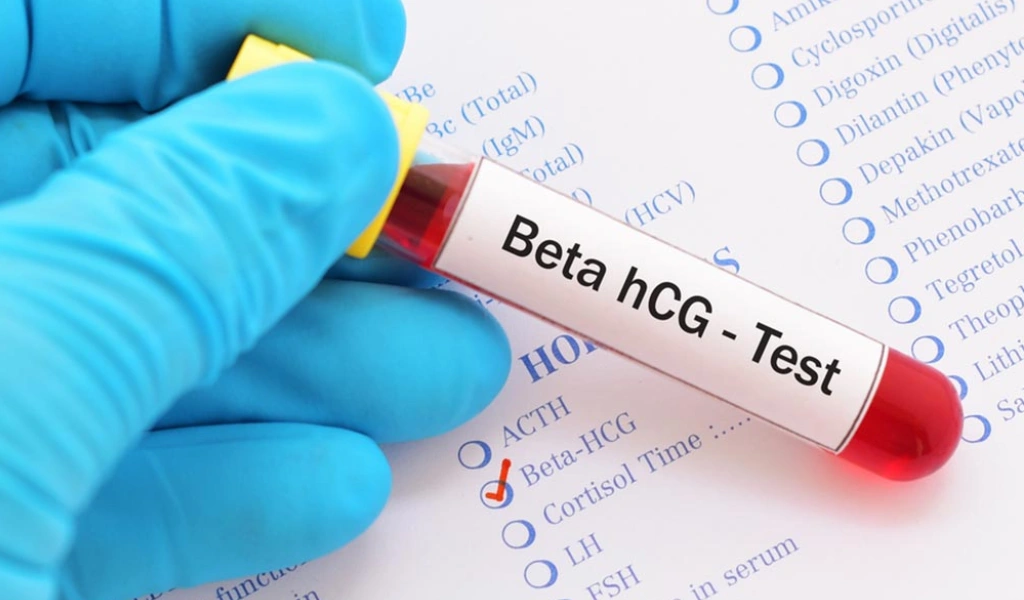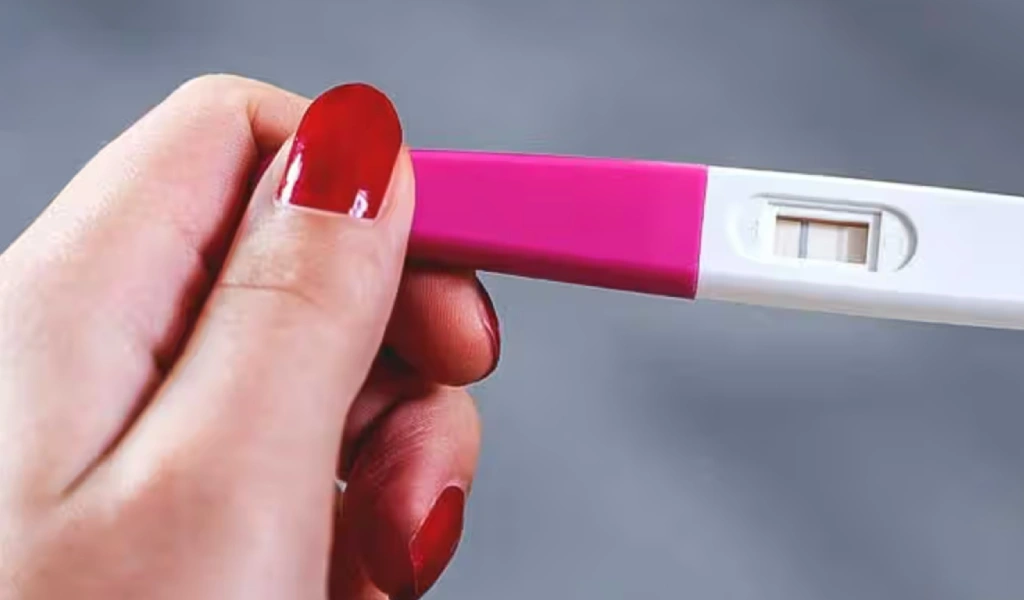Ovulation, premenstrual syndrome (PMS), and false pregnancy can cause a woman to display symptoms similar to those of pregnancy.
Women who are trying to get pregnant may feel disheartened if they experience pregnancy symptoms but receive negative test results. The standard method for pregnancy testing involves analyzing a woman’s blood or urine for the hormone hCG. Home pregnancy tests1 are created to identify hCG presence in urine.
This hormone is produced after a fertilized egg attaches to the uterus and its levels increase during the first trimester of pregnancy. However, these tests are not always accurate and may occasionally display false negative or positive pregnancy results.2
Keep reading this article ‘Find the Reasons for Pregnancy Symptoms with Negative Tests?‘ to find out why you might get a negative result on a pregnancy test even if you have pregnancy symptoms.
Despite receiving a negative pregnancy test, it is possible to experience pregnancy symptoms still
Pregnancy urine tests can sometimes provide inaccurate results, suggesting that you are not pregnant when you are. This mistake can happen for several reasons, such as.
1. Having the test done too soon during pregnancy
The level of hCG3 in the body rises as the pregnancy advances, which can take time to reach a detectable level on a test. If the test is taken too early, it may not be sensitive enough to pick up on low levels of the hormone and may show a negative result. In this situation, it is advised to wait a week and then retest.

Some pregnancy test kits may advise testing on the anticipated start of your period. However, according to the FDA, it is recommended to take a home pregnancy test one to two weeks after a missed period for more accurate results.4
A mother recounts her experience of receiving a false negative result on a pregnancy test because she tested too early, even before her anticipated period. She recalls having a suspicion of being pregnant when she conceived her first child, prompting her to take a pregnancy test. The lab technician informed her of a negative outcome, though his expression seemed uncertain.
Following this, she experienced several days of menstrual cramps leading up to her expected period, which eventually arrived but in an unusual manner, later identified as implantation bleeding. Concerned, she decided to visit her gynecologist for advice. After reviewing her medical history, the gynecologist conducted a physical examination and delivered the surprising news that she was two months pregnant.
2. When there are levels of hormones that are lower than what can be detected
There could be various reasons for a decreased level of hCG5 hormone during testing.6
- HCG levels can naturally differ between women experiencing normal pregnancies, with variations in peak and low levels occurring at different points.

- The anticipated day of the next menstrual period may not be accurately predicted, resulting in decreased levels of hCG during the test.
- Testing in the afternoon when hormone levels could be influenced by how much water has been consumed.
3. The sample that has been made less concentrated to facilitate testing
Using the initial urine of the morning is recommended for the test because it is believed to contain the highest amount of hCG.

Consuming plenty of water before the test, or even the evening before, can lessen the concentration of hCG6 in the urine and lower its content below the detectable level of the test.
4. Postponement in undergoing the examination
If the test is delayed7, various situations may occur.8
- The standard positive test typically involves the interaction of free antibodies, fixed antibodies, and hCG molecules in a sandwich-like manner. When hCG levels are elevated, they can saturate both types of antibodies separately, thus inhibiting the formation of the sandwich structure, also known as the hook effect. This issue can lead to a false-negative outcome of pregnancy symptoms.
- Later in pregnancy, there could be various forms of hCG present, which certain tests might not be able to detect, resulting in negative pregnancy symptoms.
5. Flawed methods or faulty test equipment
Most home pregnancy test kits follow the same procedures, but it is essential to carefully read the instructions before conducting the test to prevent any mistakes in the results. Not following the instructions can result in inaccuracies of pregnancy symptoms.

A kit may be faulty due to manufacturing errors or improper storage. It is also important to use a new kit, as the results may not be trustworthy after the expiration date.
Pregnancy signs present but negative pregnancy test result
Not every fertilized egg will result in a successful pregnancy, and some may be associated with abnormal medical conditions such as:
1. Pregnancy occurring outside the womb
An ectopic pregnancy occurs when the fertilized egg implants itself outside the womb, usually in the fallopian tubes. Initially, symptoms may resemble those of a normal pregnancy, such as breast sensitivity, a delayed menstrual cycle, or feelings of nausea.
However, due to the abnormal location of the pregnancy, levels of hCG (human chorionic gonadotropin) will be insufficient, leading to a negative result on a pregnancy test.9
2. Molar pregnancy is a term used to describe a situation where abnormal tissue develops in the uterus instead of a healthy fetus
The American Pregnancy Association states that molar pregnancies occur in approximately one out of every 1000 pregnancies. This rare condition is caused by abnormal fertilization, leading to the growth of an abnormal fetus. The placental tissue forms as a cluster of cells in the uterus.
In a molar pregnancy,10 the benign tumor cells can cause elevated levels of hCG, which may result in a negative pregnancy test due to a hook effect or hCG degradation products that standard tests cannot detect. As a result, the pregnancy test may show a negative result.
Initially, symptoms of molar pregnancy may resemble common pregnancy signs like morning sickness and breast tenderness but ultimately result in a miscarriage.11
Reasons why you may experience pregnancy symptoms even if you are not pregnant
Fluctuations in hormones within the body can lead to symptoms similar to pregnancy.
1. The condition known as premenstrual syndrome
Premenstrual syndrome (PMS)12 is a collection of symptoms caused by hormonal changes before a woman’s monthly period.

These symptoms can range from breast sensitivity to fatigue, dizziness, back pain, changes in mood, and stomach issues similar to those experienced during pregnancy.13 The hormone progesterone is believed to be the culprit behind these pregnancy symptoms.14
2. Ovulation occurs
Mild symptoms may occur when eggs are released from the ovaries.15 Variations in menstrual cycle length can cause confusion between ovulation and pregnancy signs.
3. Medications
Fertility treatments frequently include the administration of medications that have hormones such as progesterone and gonadotropins.

These hormones imitate the ones naturally produced by the body to initiate and maintain pregnancy. Consequently, people undergoing fertility treatments may encounter side effects that resemble symptoms of pregnancy.16
4. Pseudocyesis, also known as false pregnancy, is a psychological condition in which a person believes they are pregnant when they are not
Pseudocyesis is a rare condition where a woman falsely believes she is pregnant. This condition imitates pregnancy symptoms like irregular periods, bloating, food cravings, morning sickness, breast changes, and even feeling fetal movements and producing milk. Different neurological, hormonal, and medical problems (such as tumors or cysts in the reproductive organs) have been linked to this disorder.17
Handling Stress While Attempting to Get Pregnant
Monitoring your most fertile days, trying to get pregnant, and checking for signs of pregnancy can be a stressful experience. Remember that stress can negatively impact your ability to conceive, so it’s crucial to prioritize your overall mental and physical health.18
To take care of your mental health you should follow.
- Promoting a healthy lifestyle through eating well and staying active regularly.
- You were expressing your feelings with your partner, a trusted friend, or a family member.
- Finding time for activities that make you happy.

- Using relaxation methods like meditation or mindfulness.
- Seeking help from a medical expert if feeling stressed or unsure.
When trying to conceive, you may experience pregnancy symptoms, but they could be caused by other conditions, such as nausea or vomiting, which may indicate a digestive issue. Feeling stomach pains or discomfort could be due to frequent urination from a urinary tract infection.
Monitoring your menstrual cycle and taking a pregnancy test as directed is essential. Getting two consecutive negative results a week apart is usually accurate. Following the instructions on the test kit is important. If pregnancy-like symptoms persist after negative results, it is important to consult a doctor promptly.
Key Takeaways of ‘Find the Reasons for Pregnancy Symptoms with Negative Tests?’
- Negative results on a pregnancy test can be incorrect if the test is done too soon if hormone levels are low, if urine is diluted, if the test is taken late, or if the test kits are faulty.
- Conditions such as ectopic and molar pregnancies can lead to pregnancy symptoms, despite showing negative results on pregnancy tests.
- Hormonal changes in the body during ovulation and premenstrual syndrome can lead to symptoms that resemble those of pregnancy.
- Managing stress and anxiety while attempting to get pregnant can play a vital role in achieving a successful pregnancy outcome.




























